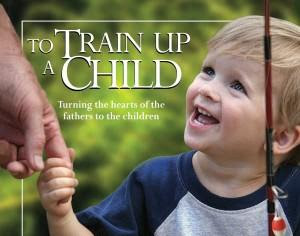 by: Bob Deffinbaugh
by: Bob Deffinbaugh
Some time ago I was
arrested by the words of the Centurion in the Gospel of Matthew:
“For I too am a man under authority,
with soldiers under me; and I say to this one, “Go” and he goes, and to
another, “Come” and he comes, and to my slave, “Do this” and he does it” (Matt.
8:9, emphasis mine).
Up until this time I
had always understood the Centurion to say that he was a man of authority,
not a man under it. Perhaps this is some kind of euphemism. But I
believe that it is a biblical principle (and one that is evident in life) that
no man is fit for authority who has not learned to be subject to it. After all,
even our Lord learned obedience (Heb. 5:8).
I believe that
Proverbs teaches us that we can tell much about the character of a person by
observing his relationship to his parents. Note these passages:
A wise son accepts his
father’s discipline, But a scoffer does not listen to rebuke (13:1).
A fool rejects his
father’s discipline, But he who regards reproof is prudent (15:5).
A wise son makes a
father glad, But a foolish man despises his mother (15:20).
A foolish son is a
grief to his father, and bitterness to her who bore him (17:25).
He who assaults his
father and drives his mother away is a shameful and disgraceful son (19:26).
Listen to your father
who begot you, And do not despise your mother when she is old (23:22).
The father of the
righteous will greatly rejoice, And he who begets a wise son will be glad in
him. Let your father and your mother be glad, And let her rejoice who gave
birth to you (23:24-25).
There is a kind of man
who curses his father, And does not bless his mother (30:11).
All of these passages
point to the fact that a good son is a godly man, and a godly man makes a good
husband. Any man who is not a good son will not be a good husband.
There is one more
proverb which has to do with parents. Frankly, I find it troublesome, but it
informs us that we must seek to learn something of the home life of our mate
before we marry him--or her:
Under three things the
earth quakes, And under four, it cannot bear up: Under a slave when he becomes
king, And a fool when he is satisfied with food, Under an unloved woman when
she gets a husband, And a maidservant when she supplants her mistress
(30:21-23).
There is a common
thread which runs through each of these four unbearable situations--one gets
something which he is unaccustomed to and which he will find difficult to
handle once he has it. A slave has only known authority over him, yet when he
becomes king his authority is absolute. His temptation will be to abuse his
newly acquired authority. A fool would normally know only poverty and
deprivation. With a full stomach he will hardly know how to behave. Certainly
much of his incentive will be lost. A maidservant who now has authority over
her mistress will be inclined to get even by making life miserable for her
former mistress. She who once felt abused and oppressed will give her mistress
a taste of oppression. So too with an unloved woman. Since she has never known
genuine love, she may very well presume upon it and by trying to drink this new
cup to the full make her husband regret the day he vowed to be faithful in his
love toward her.
I realize that some of
you have come from homes in which there was little or no love. You may wonder
if this proverb condemns you to a life of loneliness. I think not. Certainly
God’s grace is sufficient for every need. But it should warn us that those who
have not known love in their childhood years will have a tendency to abuse it
in marriage. A mate who has not been loved by parents should not take this out
on the marriage partner. And the one who marries a mate who has been unloved
should be sensitive to the kind of problems such a childhood produces. The sins
of the fathers (and mothers) are passed along, to later generations (Ex. 20:5).
 Throughout the Book of
Proverbs we have seen the teaching of the father and the mother, instructing
and warning the child. Unfortunately, that is not the way every home operates.
I am sure most of us are not entirely happy with the way we are raising our
children. This means that we may learn a great deal about our mate by giving
thought to the home environment in which he or she was raised. Proverbs implies
that the influence of the home has a great deal to do with a child’s success in
life as a partner in marriage and is a factor we cannot afford to overlook.
Throughout the Book of
Proverbs we have seen the teaching of the father and the mother, instructing
and warning the child. Unfortunately, that is not the way every home operates.
I am sure most of us are not entirely happy with the way we are raising our
children. This means that we may learn a great deal about our mate by giving
thought to the home environment in which he or she was raised. Proverbs implies
that the influence of the home has a great deal to do with a child’s success in
life as a partner in marriage and is a factor we cannot afford to overlook.
No comments:
Post a Comment